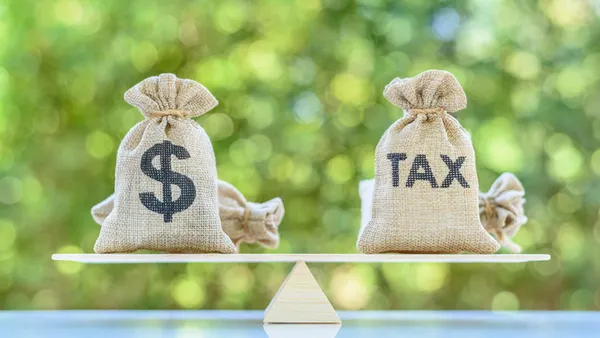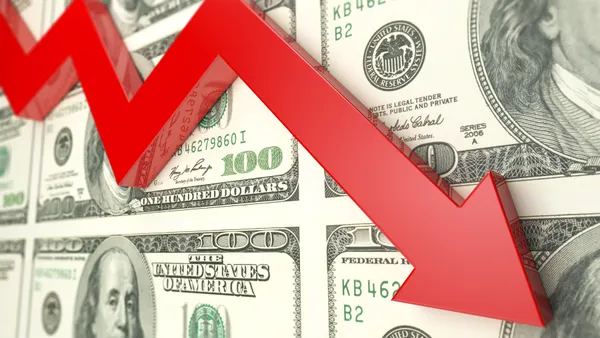Dive Brief:
- Consumer sentiment in June rose for the first time in six months as the Trump administration put on hold imposition of high tariffs against China and other major U.S. trade partners, the University of Michigan said Friday.
- The mood brightened regardless of income, geographic region, age and political affiliation, the university said, citing a survey. Expectations for inflation in 12 months fell to 5.1% from 6.6% in May.
- “Consumers appear to have settled somewhat from the shock of the extremely high tariffs announced in April and the policy volatility seen in the weeks that followed,” Joanne Hsu, director for the university’s surveys of consumers, said in a statement. Still, “their views of business conditions, personal finances, buying conditions for big ticket items, labor markets and stock markets all remain well below six months ago.”
Dive Insight:
Release of the survey, conducted May 27 through June 9, coincided with news that a broad attack by Israel on military targets in Iran triggered retaliatory strikes by Tehran.
The price of West Texas Intermediate crude oil on Friday surged 7.3%, indicating that prolonged fighting may complicate efforts by President Donald Trump to fulfill a campaign promise to reduce energy prices and contain inflation.
Before Israel’s attack consumers were less concerned about price pressures than earlier this year, according to Hsu. Long-run inflation expectations fell to 4.1% this month from 4.2% in May as inflation eased more than forecast.
Inflation has slowed, with the consumer price index, excluding volatile food and energy prices, rising 0.1% last month and 2.8% over 12 months, the Bureau of Labor Statistics said Wednesday.
Companies have drawn down inventories that they stockpiled before the imposition of tariffs in April rather than pass on price increases to consumers, according to economists at the Conference Board and other organizations.
Still, “inflation expectations remain above readings seen throughout the second half of 2024, reflecting widespread beliefs that trade policy may still contribute to an increase in inflation in the year ahead,” Hsu said.
More broadly, “consumers remain guarded and concerned about the trajectory of the economy,” Hsu said.
The murky outlook for inflation and mixed signals about economic growth have prompted the Federal Reserve this year to hold off on changes to borrowing costs.
Policymakers will probably leave the federal funds rate unchanged at the end of a two-day meeting on Wednesday, according to traders in interest rate futures.
Longer term, traders see a 70% chance that the central bank will cut the main interest rate by at least 0.5 percentage point by the end of this year, according to the CME FedWatch Tool.
Economists have trimmed the odds of recession as Trump partially retreated from his April announcement of the highest U.S. import duties since the 1930s.
“Americans are relieved to see President Trump paring back his trade war and tariffs, but they remain on high alert for price increases at the store and gas pump,” Navy Federal Credit Union Chief Economist Heather Long said.
“It’s unsettling how many Americans believe they will be financially worse off in a year,” she said Friday in an email. “Uncertainty and anxiety are still high, and now there is renewed geopolitical concern with Israel striking Iran.”
















